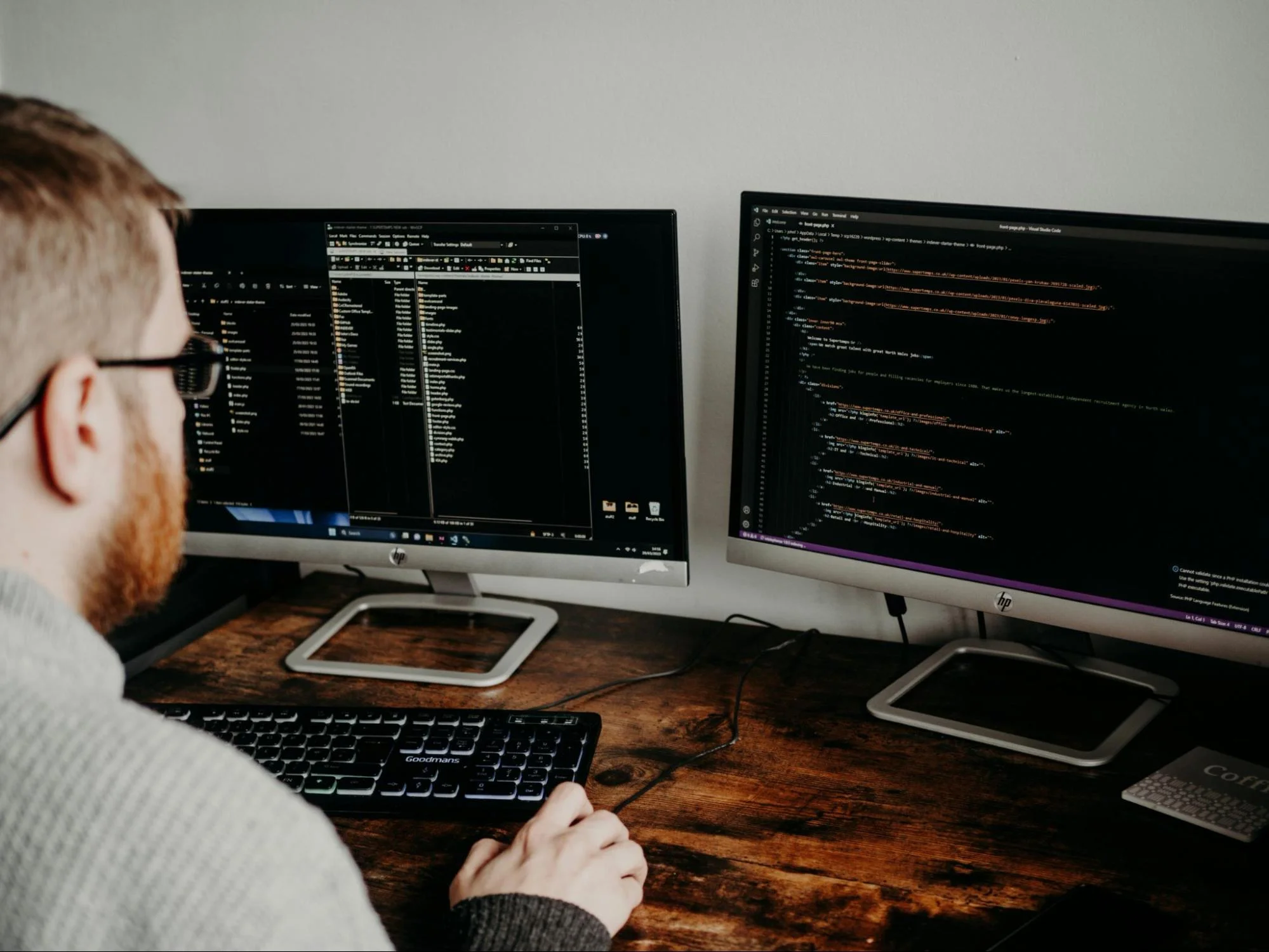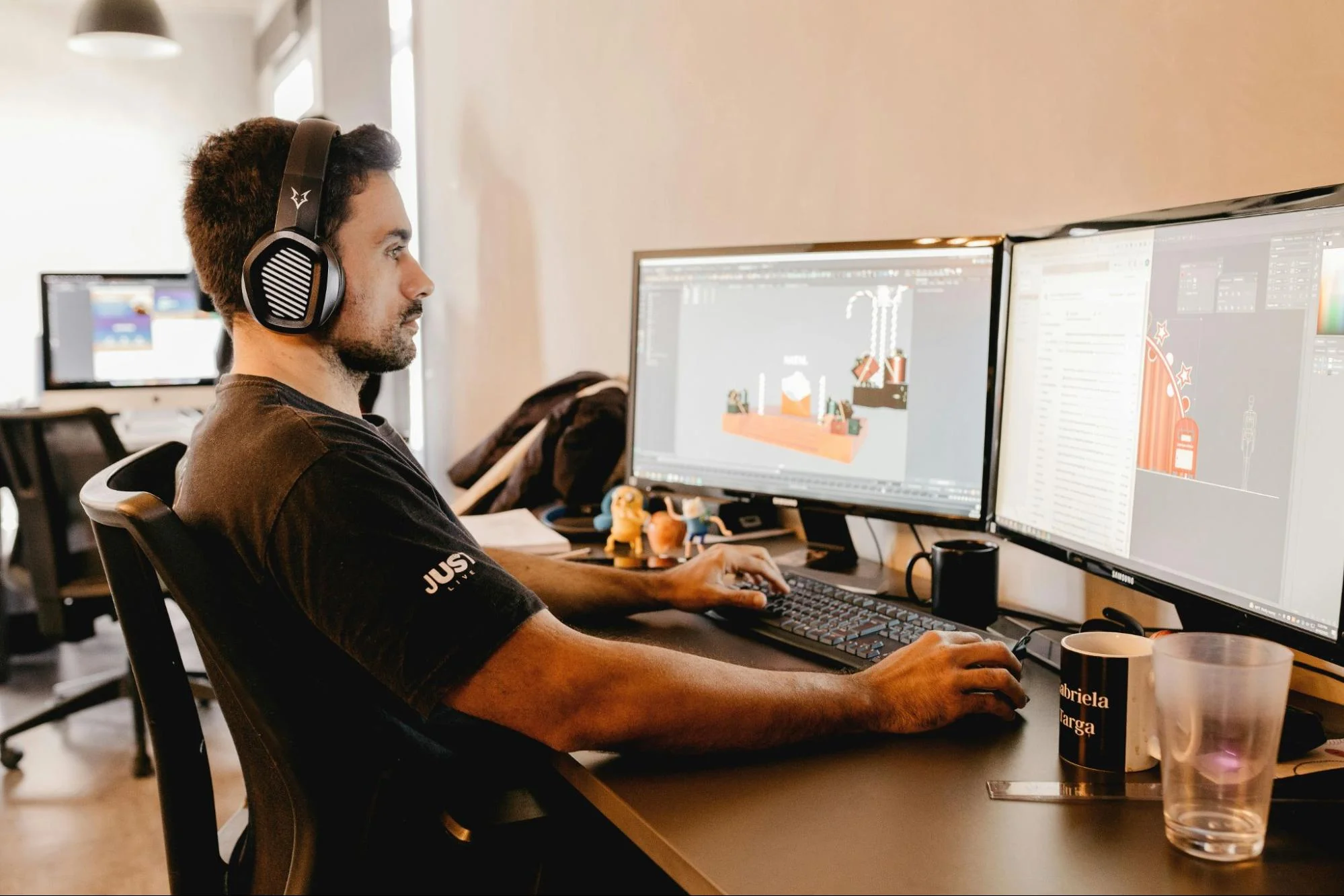Update: This article was last updated on 13th January 2026 to reflect the accuracy and up-to-date information on the page.

Coding, or programming, drives almost all contemporary technology, from cell phones to space travel. It‘s an essential skill, but it‘s also full of interesting facts that may amaze even tech-savvy individuals. Did you know that coding classes for kids can expose them to these interesting facets at an early age, and therefore it is an excellent method to ignite curiosity and creativity? Let‘s dive into some interesting coding facts that just may blow your mind!
Recommended Reading: Top 20 Computer Science Facts for Kids
1. Natural Languages inspire Coding Languages
You may imagine that coding languages are totally unique from what we speak in regular conversation, yet the reality is that natural human languages motivate many coding languages. Programming languages such as Python and Java have syntaxes that follow English grammar in order to be more readable and understandable for humans. This accessibility helps beginners start coding without feeling overwhelmed by complex, cryptic commands. Facts about coding like this highlight how programming has evolved to be more user-friendly.
2. The First Computer Programmer Was a Woman, Paving the Way for Inclusivity in Tech
In the 19th century, long before modern computers existed, a mathematician named Ada Lovelace wrote the first-ever algorithm intended to be executed by Charles Babbage’s Analytical Engine. Because of her visionary work, Ada is often considered the world’s first computer programmer. Today, Ada’s contributions are celebrated as an essential foundation for all of computer science and technology. Coding facts like this show how history has shaped modern programming.
Recommended Reading: Rise of Machines – 10 Reasons Why Coding is an Essential Skill for Kids
3. “Hello, World!” – The First Program for Many
For almost every beginner learning to code, the first program they write is “Hello, World! ” This simple program, which outputs the phrase on the screen, is an easy introduction to syntax and the basics of coding. It is now a convention since its utilization in the 1978 publication “The C Programming Language” by Brian Kernighan and Dennis Ritchie, which has since propagated across almost all programming languages. It is a necessary snippet of programming information for beginners to start learning how to code.
4. The Birth of “Bug” in Programming
You may have been told the phrase “bug“ is used to refer to an error in software, but you may not have known where this originated. It came from an actual moth found stuck in one of the earliest computers by computer science pioneer Grace Hopper. Even though the term “bug“ had already been applied in engineering, Grace Hopper‘s group reported this event, and it became widely accepted in the computing field. This is among the most famous 100 facts about coding in history.
5. There Are Over 700 Programming Languages
Coding is not a single language. There are, in fact, more than 700 programming languages available today. Some of them are very common, such as Python, JavaScript, and C++, whereas others are obscure or highly specialized to perform specific tasks. Each of them is for a particular function, whether for web development, data analysis, or system programming, making coding a very varied and rich activity. These statistics on programming and coding prove the range of options available to developers.
Recommended reading: Top 10 Coding Languages for Kids to Learn

6. Coding Is a Universal Language
Universal coding languages bind programmers across the globe together using the same syntax and ideas. For example, Python programming in Japan can be read by a Brazilian programmer, ignoring linguistic and cultural differences. This universal application of coding is one of the most fascinating facts about coding that brings programmers all over the world together.
7. The First Video Game Was Created in the 1950s
In 1958, William Higinbotham created one of the first video games, “Tennis for Two.” It was a simple tennis simulation game displayed on an oscilloscope screen. This pioneering use of coding for entertainment marked the beginning of the multi-billion-dollar video game industry, which today relies heavily on advanced programming for graphics, physics, and interactivity. If you’re looking for coding info, gaming history offers fascinating insights into early programming applications.
8. Coding Powers Space Exploration
Did you know that coding has a lot of power behind space exploration and has allowed us to reach for the stars? NASA‘s Apollo Guidance Computer used code in the 1960s to take astronauts to the Moon. The software was created by the team under Margaret Hamilton’s leadership, who was pivotal in the success of the Apollo missions. Today, coding remains a key component of every space mission, from launching satellites to Mars rovers, continuing to advance the limits of what we can do in space. Details on coding such as this demonstrate its value beyond Earth.
9. GitHub – The World’s Largest Community of Developers
GitHub is the site where millions of programmers work on coding projects. It is home to open-source projects and provides version control tools, enabling programmers to monitor changes in their code and cooperate effectively. GitHub‘s user base is large, with more than 100 million repositories, and it is the preferred site for programmers to share, learn, and work on projects worldwide. If you seek interesting computer programming facts, GitHub‘s impact cannot be denied.
10. Programming Can Be Traced Back to Music
One of the first types of “programming“ is traceable to music composition. In the 9th century, musical notations were employed to program the sequences of notes played by mechanical musical instruments, like player pianos. This concept of employing symbols to program a sequence of actions is quite close to today’s coding. This is one of the programming facts that link coding to the arts.
Recommended reading: 24 Coding Questions (with Answers) For 8-14 Years Old
11. Artificial Intelligence (AI) Is Built on Coding
Artificial intelligence, capable of human decision-making and learning mimicry, is constructed solely with code. AI has numerous uses, including autonomous vehicles, voice assistants, and healthcare diagnosis. Machine learning, one of the types of AI, depends on enormous databases and programming language-based algorithms like Python, so coding is a key aspect of this groundbreaking technology. Details about coding such as this reveal how AI is changing the world.
12. Billions of Lines of Code in Your Pocket
Your phone is a technological wonder, and billions of lines of code drive it. The operating system, programs, and even the simple task of placing a call entail very intricate programming. A typical Android phone contains approximately 12-15 million lines of code, whereas something like Google‘s search engine contains an even greater amount. Facts about coding such as this one illustrate just how much work goes into daily technology.
13. Hacking Isn’t Always Bad
The word “hacking“ is typically used in a negative sense, but not every hacker is malicious. Ethical hackers, or white hat hackers, utilize their skills to look for vulnerabilities within systems and guard them against intrusions. Organizations employ ethical hackers to conduct penetration testing and fortify their systems, safeguarding user information. If you need coding details, cybersecurity is a sector you may want to research.
14. Coding and Robotics Go Hand in Hand
Coding and robotics are highly interconnected. Robots operate based on coded commands to execute tasks, ranging from making things to navigating the deep ocean, or even performing surgery. Most programming languages that are used for robotics include Python, C++, and Java in designing automation and AI-enabled algorithms. All these programming facts showcase how important coding is in fostering innovation.
15. Coding Can Boost Cognitive Skills
Learning to code is not merely a career goal; it can actually improve cognitive function. Coding helps with problem-solving, logical reasoning, and thinking creatively. It has been demonstrated that children who learn to code tend to perform better in math and are able to hone excellent analytical skills that benefit them in other areas of study. Such interesting facts about coding illustrate the cognitive advantages of programming.

16. The Code Behind Bitcoin
Bitcoin, the first cryptocurrency in the world, is based on blockchain technology—a system of distributed ledgers kept by thousands of lines of code. Blockchain provides immutability, security, and transparency, which has revolutionized the finance sector. Programming such information indicates how important programming is in the modern finance system
17. Some Code Is Simple but Powerful
A few lines of code can accomplish truly great things. As an example, it takes only 60 lines of Python code to establish a basic web server, and a single line of code is enough to cause a big website to collapse if written incorrectly. Linux’s notorious rm -rf command, if carelessly employed, can destroy entire filesystems. These coding facts highlight the ability and accountability of programmers.
18. Programming Is Becoming Essential in Every Industry
Coding is no longer exclusive to the tech world. With technology and automation being used in nearly every business, coding skills are most in demand today in finance, healthcare, education, and the entertainment sector. Physicians apply coding for medical research data analysis, while teachers make apps for educational learning. Examples of coding facts such as this demonstrate that programming is an in-demand skill for any industry.
19. Coders Have High Problem-Solving Skills
Programmers are sometimes referred to as “digital problem solvers.” Code writing involves splitting difficult problems into smaller, easier pieces. This process, called decomposition, is an important skill that can be applied to many everyday problem-solving scenarios, allowing coders to solve problems successfully and creatively. Coding topics like this demonstrate why learning how to program is such a useful skill
20. There’s a Coding Language for Everyone
With more than 700 programming languages to choose from, there‘s a language for every kind of problem. HTML and CSS are ideal for beginners who want to make simple websites, Python is easy to learn and ideal for data science, and JavaScript is ideal for making interactive web applications. The diversity makes it possible for individuals to pick a language that best fits their interests and objectives. 100 facts about coding would not be complete without stating how diverse programming languages are.
21. Coding Can Be Like Writing Poetry
Coding is also likened to writing poetry. Both are about creativity, an understanding of structure, and being able to express a complicated concept in a straightforward manner. Like a poet chooses words to produce rhythm and meaning, a programmer picks functions and variables to craft beautiful, effective solutions. These programming and coding facts point out the artistic aspect of coding.
Recommended Reading: Top 5 Important Life Skills Kids Can Learn from Coding
22. Open Source: Collaboration on a Global Scale
The open-source revolution in coding promotes collaboration, where anyone can view, use, change, and distribute software without cost. Sites such as GitHub have made open-source a global phenomenon, with thousands of programmers contributing to well-known projects such as Linux, Android, and Python. This collaborative culture leads to quick innovation. Fascinating facts about coding such as this illustrate how programmers collaborate across the globe.
23. Programming Influences Daily Life in Invisible Ways
From traffic lights to household appliances, programming is an unseen power behind most of the modern conveniences we take for granted. Embedded computers in automobiles, refrigerators, and even washing machines depend upon code to operate, reflecting how programming has become a part of nearly every function of everyday life. Statistics about coding show that it appears in more locations than we might tend to appreciate.
24. Quantum Computing: The Future of Code
Quantum computing, just beginning, is based on concepts of quantum mechanics to execute computation much more rapidly than traditional computers. This emerging form of computation necessitates an alternative way of thinking in terms of code via quantum algorithms. Quantum computer code has the potential to resolve matters that are in effect impossible with current supercomputers. Reporting on coding of this nature displays how programming continues to advance.
25. Some Coding Mistakes Led to Major Failures
Coding bugs, or “bugs,” have at times had disastrous consequences. During 1996, a bug in the Ariane 5 rocket’s navigation computer program made the rocket explode only a few seconds after launch at a cost of about $500 million. The bug resulted from an integer overflow, where a large floating-point value was erroneously treated as a smaller integer, making the rocket go off course. This event indicates how a single small coding mistake can have gigantic financial and functional implications.Interesting computer programming facts such as this illustrate why accuracy is important in coding
Conclusion
Coding is far more than just writing instructions for computers—it’s a gateway to understanding technology, solving real-world problems, and even enhancing our creativity. The journey of programming, from Ada Lovelace’s first algorithm to today’s AI systems, is full of astonishing milestones and fascinating developments. As technology continues to evolve, coding will undoubtedly remain at the heart of innovation, transforming the way we live, work, and interact with the world. Whether you are a seasoned developer or just beginning your coding journey, there’s always something new and mind-blowing to discover about the power of code.
Want to make your child future-ready with Robotics? Moonpreneur offers a tailor-made program. Reserve a spot in our free 60-minute workshop today and introduce them to the fantastic world of robotics and innovations!


























This blog is super interesting! I loved learning about cool facts like the story behind the first programmer, Ada Lovelace, and how coding powers everything from space missions to daily life. It’s amazing how coding connects people worldwide and boosts creativity.
While the facts are interesting, the blog feels a bit too long and detailed. Shorter sections with key points would make it easier to read and more engaging for readers with limited time.